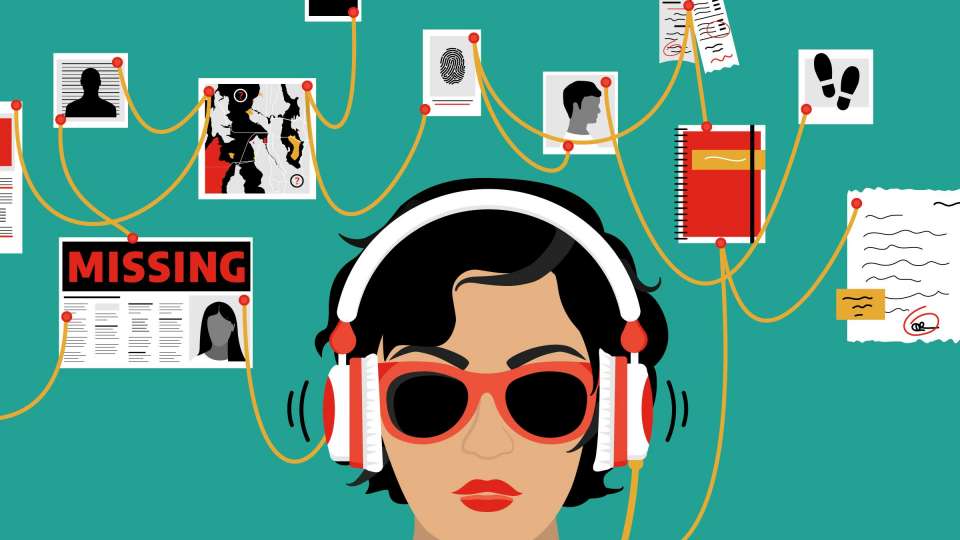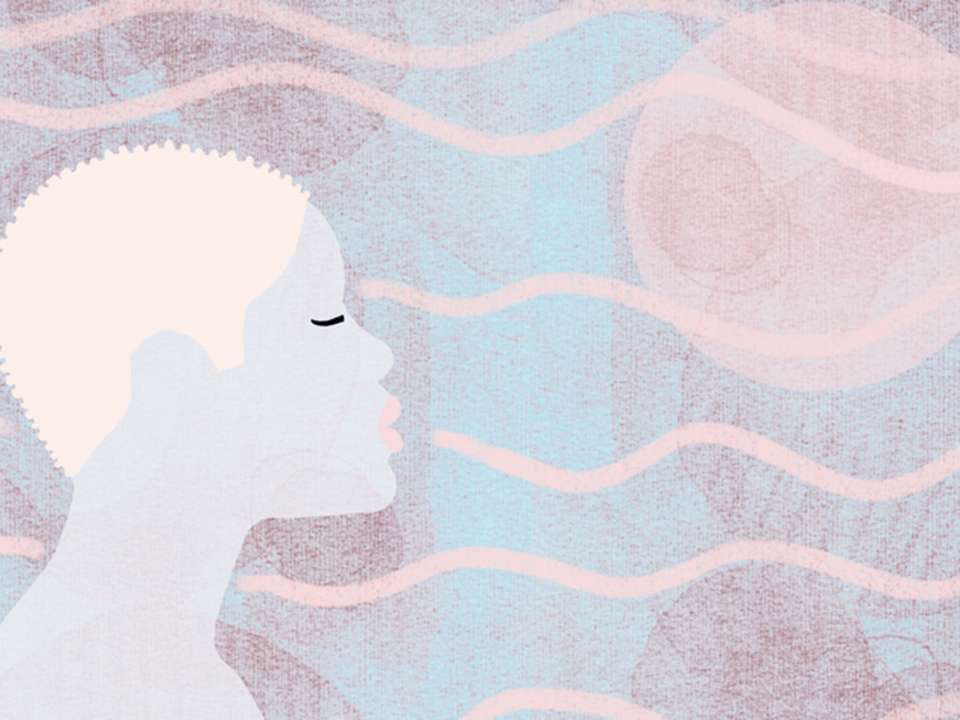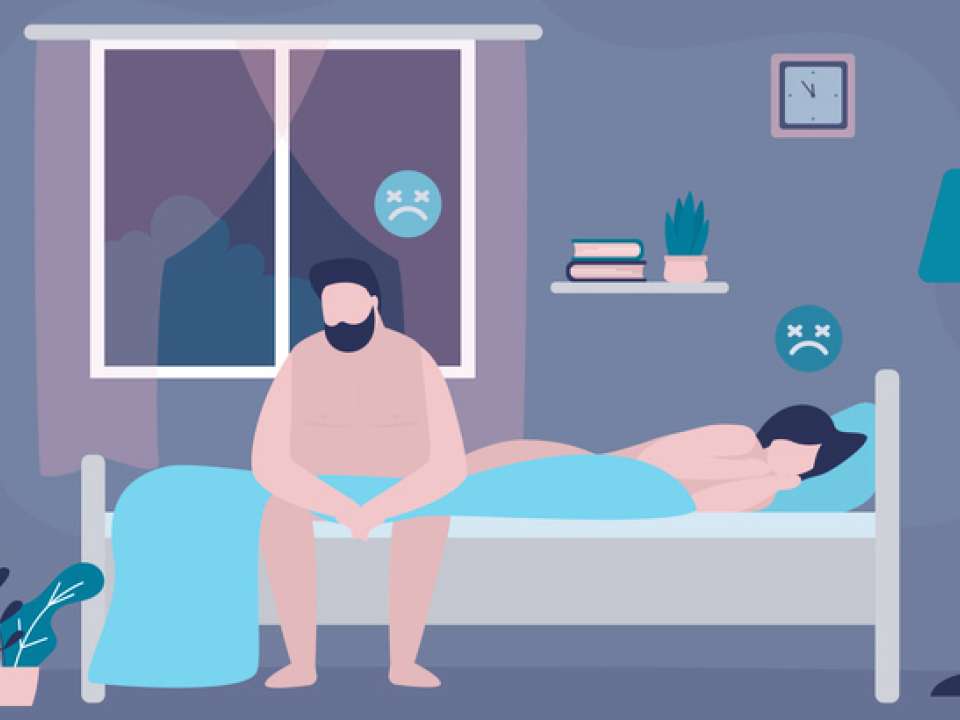
From murder mystery classics like “Making a Murderer” and “The Staircase” to weird crime hits like “Wild Wild Country” and “Tiger King,” it’s never been a better time to be a true crime fan.
Whether you’re a longtime fan or just found yourself binge watching the genre during the pandemic, you might wonder: Why exactly do you like it?
True crime shows often go into a disturbing level of detail about gruesome killings — and you can’t comfort yourself with reminders that the stories are made up, like with horror or thrillers, since true crime shows are, after all, about things that happened in real life.
If you’ve ever been concerned about your true crime fascination, here’s what you need to know about what it means — and when you should consider taking a break.
Why true crime is compelling
True crime has all the basics of good storytelling: Interesting characters, a sense of urgency, tension that is (in most cases) released when the mystery is solved at the end.
The genre also has another selling point: catharsis.
Normally, we experience emotions like sadness or anger in real-world situations that are much more serious and negatively impact us. Engaging with those emotions in a safe, contained and chosen environment — like on your couch — can be therapeutic for some people.
“It’s really common and normal to enjoy things that involve experiencing difficult emotions in safe ways, like rollercoasters and horror movies and sad films,” says Emily Dworkin, a trauma researcher and assistant professor in the UW School of Medicine Department of Psychiatry and Behavioral Sciences.
The dark(er) side of true crime
Though its subject matter may be brutal, true crime itself as a genre isn’t inherently bad. Watching it doesn’t mean that there’s anything wrong with you.
What you may not realize, though, is that many true crime shows end up perpetuating myths about violence that can be harmful to viewers.
First, it is important to distinguish between true crime shows and real-life crime, Dworkin says. While true crime is about real events that happened, the genre only represents a subset of the rarest, most extreme crimes, like serial killers and stranger rape.
Most crimes in the United States are nonviolent property crimes, like theft and burglary, according to data from the Federal Bureau of Investigation and the Bureau of Justice Statistics gathered by the Pew Research Center.
Among violent crimes, robbery and assault are most common, followed by rape and, lastly, murder. Most of the time, survivors or victims of these crimes know or knew the perpetrator — serial killings, for example, are very rare.
Plus, while there has been a significant decrease in crime over the past three decades, many people perceive that crime rates are rising — a belief true crime shows only validate.
So, why is this harmful? On many true crime shows, the victims are often women. The narratives about serial killers and stranger rape may give women and other people the erroneous idea that these are the crimes women are mostly likely to experience, Dworkin says.
Although this is changing over time, many popular true crime stories have focused on crimes against white women, which ignores the violence faced by women of color, especially Black and Indigenous women. Crimes against trans women are also often left out.
The detailed analysis of the crimes — and what victims’ actions were preceding them — can also lead to victim blaming.
“True crime focuses on instances where crimes actually occur; there are no stories where people made the exact same choices and bad things didn’t happen. That lets you draw the conclusion that their choices led to what happened. Looking at stories with 20/20 hindsight can give you a false sense of being able to use that info to prevent something similar from happening to you,” Dworkin explains.
Can watching true crime be harmful?
Along with perpetuating victim blaming narratives, there are other ways watching lots of true crime could impact your thoughts and behavior.
“Since true crime often plays into societal myths about crimes women are likely to experience and what women should do about that, they may restrict their behavior as a result ,” Dworkin says.
If you find yourself starting to fear traveling anywhere alone, walking to your parked car at night, or doing other necessary activities that are not inherently risky, it might be a good time to reexamine how true crime has framed your perceptions of safety.
“It’s not a good thing to make people feel fear in their daily lives when that fear doesn’t actually help them stay safe,” Dworkin says.
The harsh truth is that rapists and killers are usually partners, friends, family members or acquaintances — not strangers. However, Native American women and transgender women, particularly trans women of color, do experience higher rates of violence from strangers than white women do. (But these crimes, fueled by racist and transphobic beliefs, rarely get discussed.)
Along with potentially causing people to restrict their behaviors, buying into sensationalized ideas of crime could also worsen feelings of self-blame survivors of real-life crime may already have.
“Self-blame is all but ubiquitous in trauma survivors, no matter what the details of the trauma are,” Dworkin says.
It’s understandable to want to blame ourselves. If it was our fault, we can understand what we did wrong and do something different next time. However, that’s not the way crimes and traumatic events happen. The perpetrator is always responsible, never the survivor or victim.
“I think it can be hard: you want to feel like you could have done something differently to prevent it, but the reality is that people can do all the right things and bad things still happen,” says Dworkin.
Can watching true crime be helpful?
Recognizing that bad things can happen regardless of someone’s attempt to prevent them is the opposite of comforting — Dworkin knows this. Instead of avoiding this discomfort, though, it’s important to sit with it, which watching true crime could be an outlet for.
For some people, true crime may be a way to work through past traumas or confront current fears in a safe environment, similar to strategies used in exposure therapy. In this sense, it could be empowering for some people.
If this is the case, Dworkin doesn’t see a problem with it. The key is monitoring how watching, reading or listening is changing your behavior and sense of safety in the world to make sure the stories aren’t getting to you too much. If that happens, it might be a good time to stop.
Another way to engage with true crime is to recognize it for what it is and isn’t without buying into victim blaming. Ask yourself questions when you watch: Why might the survivor or victim have reasonably made the choices they did with the information they had at the time? Is it possible that different choices could have led to the same outcome, or potentially an even worse one? What societal beliefs or systems allowed the perpetrator(s) opportunities to commit crimes that they may not have had otherwise? What stories, and whose stories, are being left out?
Make watching true crime work for you — and know when to take a break if you need to.

 Healthy ideas for your inbox
Healthy ideas for your inbox





